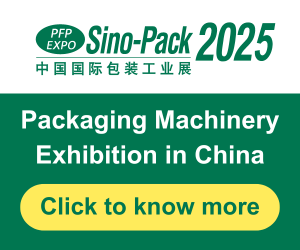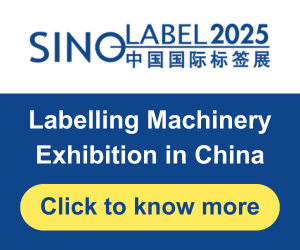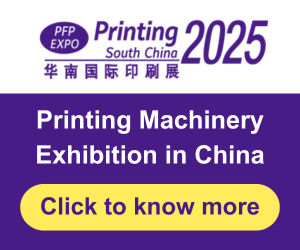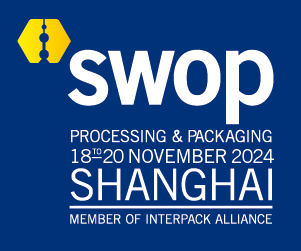The Power of Automation in Packaging: Revolutionizing Efficiency and Precision
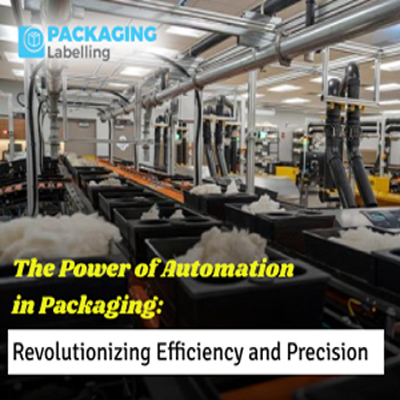
Introduction
In our fast-changing world, the transformative impact of automation has been felt across various industries. One sector that has particularly embraced this change is packaging. With the integration of automated systems into packaging processes, the landscape has seen a remarkable shift in how products are handled, packed, and shipped. This technological evolution has not only bolstered efficiency but has also significantly enhanced precision, bringing forth a host of benefits for manufacturers, businesses, and consumers.
Streamlining the Packaging Process
Automated packaging systems have redefined the entire packaging process, bringing unprecedented efficiency to tasks ranging from sorting and filling to sealing and labeling. The integration of cutting-edge technologies like robotics, sensors, and artificial intelligence has optimized every stage of packaging. By reducing reliance on manual labor, these systems have successfully minimized the scope for errors and maximized overall productivity.
Enhanced Efficiency: Swift and Consistent Packaging
One of the most prominent advantages of automation in packaging is the substantial improvement in overall efficiency. By harnessing advanced machinery and robotics, tasks that would traditionally consume significant time and resources can now be executed within a fraction of the time. Automated packaging lines are equipped to handle large product volumes at high speeds, ensuring seamless and consistent packaging even during peak production periods. This not only accelerates the manufacturing process but also equips businesses to adeptly respond to the demands of a dynamic and fast-paced market.
Precision and Accuracy: Maintaining Product Integrity
In addition to efficiency, automation in packaging ensures a heightened level of precision and accuracy. Modern packaging systems are embedded with sophisticated sensors and control mechanisms, guaranteeing precise measurements, cuts, and seals, resulting in standardized end products. This precision is particularly critical in industries where even minor discrepancies can compromise the quality and safety of products. By minimizing the risk of errors, automated systems uphold the integrity of packaged goods, thereby bolstering consumer satisfaction and fostering trust in the brand.
Cost Reduction and Resource Optimization
Furthermore, the integration of automated packaging systems contributes significantly to cost reduction and resource optimization. While the initial investment in automation technology might appear substantial, the long-term advantages far outweigh the costs. By eliminating the need for excessive manpower, automated processes effectively reduce labor expenses and minimize the potential for human-induced errors. Additionally, these systems are designed to minimize material wastage by precisely measuring and utilizing packaging materials, promoting cost-effective production practices and environmentally sustainable operations.
Compliance and Standardization
In the global marketplace, the integration of automation in packaging serves as a crucial factor in upholding conformity with industry standards and regulations. Sectors like pharmaceuticals and food and beverages are obligated to uphold rigorous quality control protocols and strict safety criteria. Automated packaging systems are precisely designed to ensure adherence to these standards, thereby ensuring that every packaged product aligns with the necessary specifications. This dedication to compliance not only fosters consumer confidence but also empowers businesses to broaden their market presence by conforming to international packaging regulations.
Encouraging Innovation and Customization
Moreover, the integration of automation in packaging fosters a culture of innovation and customization. Advanced technologies enable the development of customizable packaging solutions tailored to specific product requirements and consumer preferences. From personalized labeling to unique packaging designs, automation facilitates the creation of visually appealing and functional packaging that enhances overall product presentation and marketability. This adaptability empowers businesses to remain competitive in a rapidly evolving market and effectively cater to the diverse needs of consumers.
Addressing Emerging Challenges
Despite the numerous benefits that automation brings to the packaging industry, there are also certain challenges that businesses must navigate. One such challenge involves the initial capital investment required for implementing automated packaging systems. While the long-term returns are substantial, the upfront costs can pose a significant barrier, especially for small and medium-sized enterprises. However, with the growing demand for streamlined processes and the increasing need for precision in packaging, the long-term advantages often justify the initial expenditure.
Another challenge lies in the need for skilled personnel capable of operating and maintaining these complex automated systems. Businesses must invest in training programs to equip their workforce with the necessary skills to handle and troubleshoot these advanced technologies effectively. Additionally, fostering a culture of adaptability and continuous learning within the organization is crucial to ensure that employees remain proficient in utilizing the latest automation tools and techniques.
Furthermore, the integration of automation in packaging demands a comprehensive understanding of cybersecurity measures. With the interconnectedness of systems and the reliance on digital interfaces, ensuring the security of sensitive data and maintaining the integrity of automated processes is paramount. Implementing robust cybersecurity protocols and regularly updating defense mechanisms can help safeguard automated packaging systems from potential cyber threats, thus protecting the integrity of the entire production process.
Future Prospects and Technological Advancements
In the realm of packaging automation, the prospects for the future are bright, as ongoing technological advancements are anticipated to fuel further breakthroughs. The emergence of intelligent packaging solutions integrating features like sensors and IoT (Internet of Things) technology is poised to transform the packaging and monitoring processes across the supply chain. These innovative packaging solutions facilitate real-time monitoring of crucial factors such as temperature, humidity, and location, safeguarding product quality and safety during transit and storage.
Furthermore, the integration of machine learning and artificial intelligence is poised to significantly enhance the capabilities of automated packaging systems. By processing extensive data, these technologies can streamline packaging processes, forecast maintenance requirements, and identify opportunities for heightened efficiency. This proactive approach not only reduces downtime but also enhances the overall performance of automated packaging systems, enabling businesses to operate more effectively and flexibly in a rapidly evolving market landscape.
The packaging industry is witnessing a growing synergy between automation and sustainable practices. Manufacturers are now prioritizing the creation of environmentally friendly packaging solutions that lessen the ecological footprint of production and distribution processes. Automated systems are being tailored to utilize recyclable materials and curtail energy usage, in line with the worldwide momentum towards sustainability and heightened environmental awareness.
Conclusion
In conclusion, the profound impact of automation on the packaging sector is undeniable, given its capacity to redefine efficiency, accuracy, and creativity. Despite existing challenges, companies embracing automation technology can establish themselves for enduring success and competitiveness. By harnessing automation to streamline operations, guarantee product authenticity, and respond to shifting consumer preferences, businesses can navigate the dynamic global market and provide outstanding products that align with the principles and anticipations of contemporary consumers.



